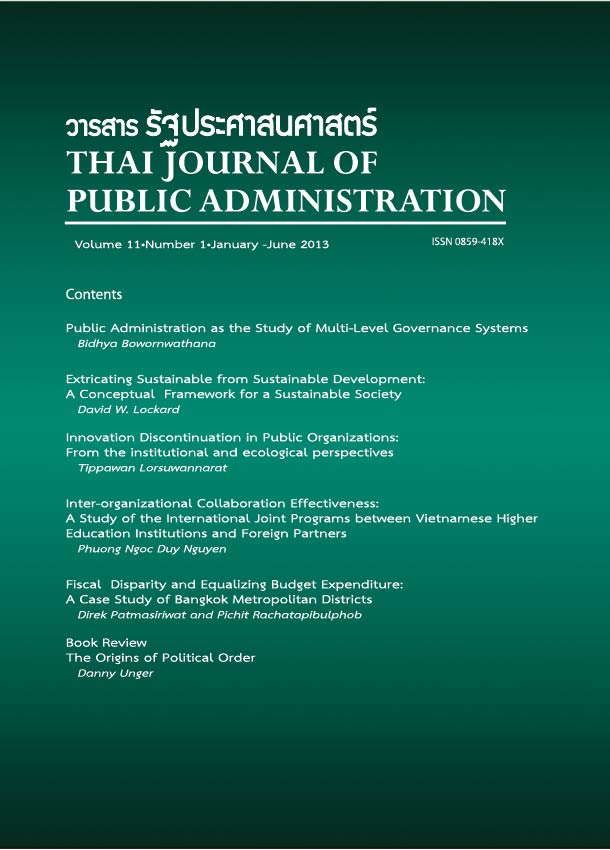Innovation Discontinuation in Public Organizations: From the Institutional and Ecological Perspectives
Keywords:
Innovation discontinuation, Institutional theory, Population ecology, Public Organizations, Voluntary innovation, Compulsory innovationAbstract
The present paper examines the discontinuation of two types of innovation adopted in public organizations by employing the integration ofinstitutional and ecological perspectives. The analysis of data was performed on 292 public organizations that use voluntary innovation (e-learning) and compulsory innovation (e-auction) through multiple regression models. Control variables include organizational size and innovation experience. The findings find that discontinuation of voluntary innovation can be explained by cultural compatibility, innovation legitimacy, sunk cost of innovation, and adaptation factors (knowledge management practices and collaborative networks). However, only cultural compatibility, innovation legitimacy, and knowledge management can explain the discontinuation of compulsory innovation. The inclusion of knowledge management and collaborative networks factors
in the framework reduces the environmental determinism of the ecological and institutional perspectives and highlights the importance of organizational adaptation. By introducing types of innovation to its methodology, the current
study contributes a potential solution to the problem of contradictory results from previous innovation studies. The findings of this research could help make failure of potentially highly advantageous innovations less likely, and could
help to facilitate their successful implementation.
Downloads
Published
2013-06-01
How to Cite
Lorsuwannarat, T. (2013). Innovation Discontinuation in Public Organizations: From the Institutional and Ecological Perspectives. Journal of Public Administration, Public Affairs, and Management, 11(1), 59. retrieved from https://so05.tci-thaijo.org/index.php/pajournal/article/view/22721
Issue
Section
Articles



